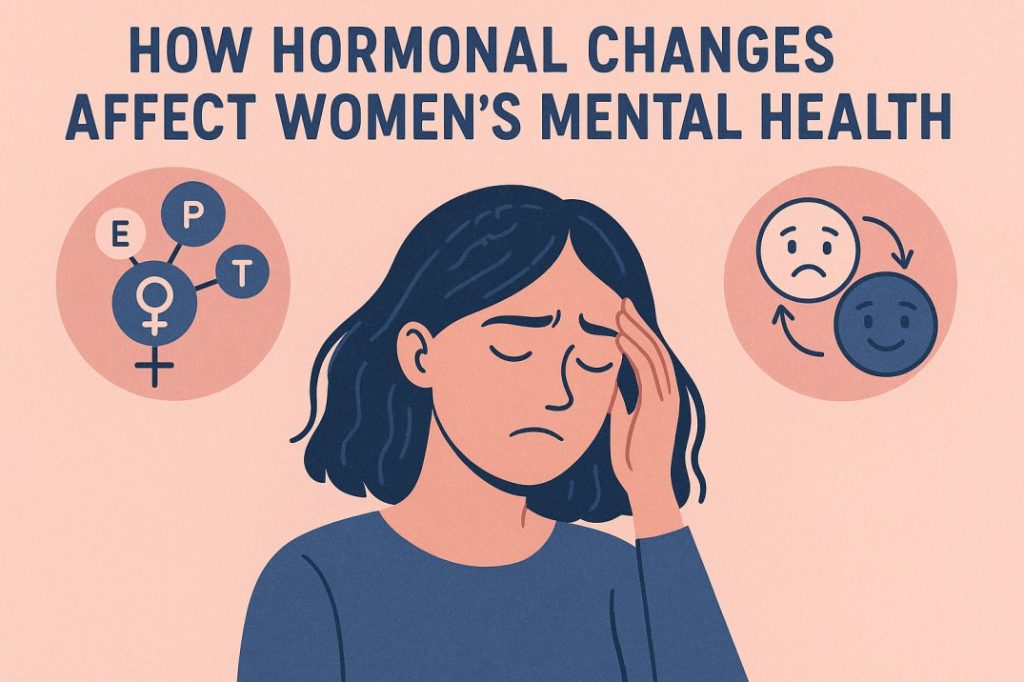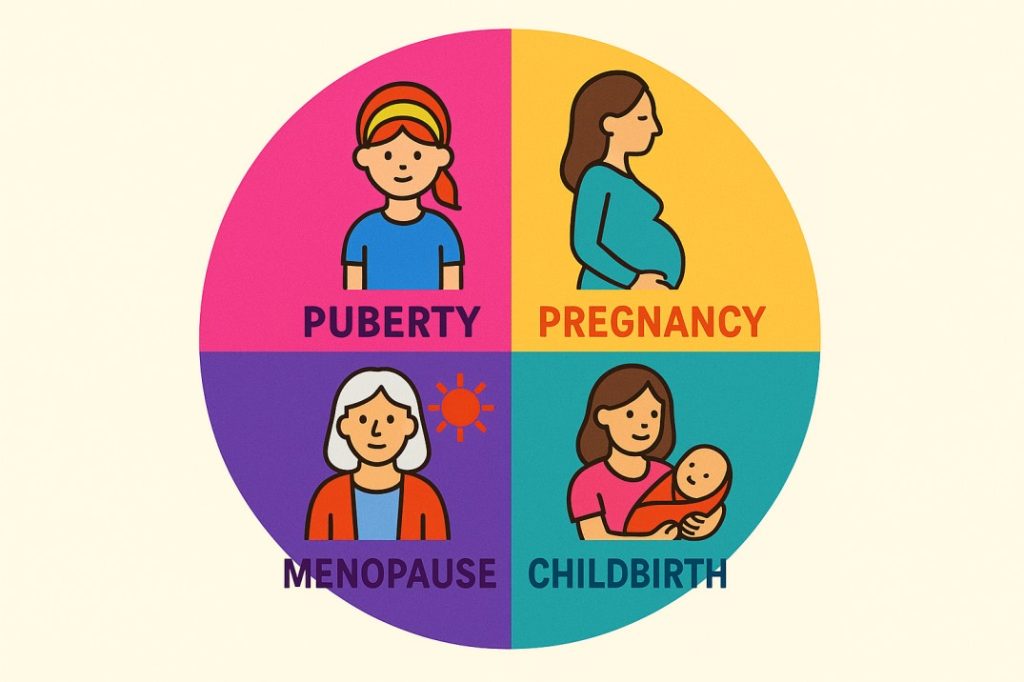Introduction
As women grow older, there are changes in hormones that may affect brain function and the severity of mental health conditions. Research also shows that women are two times more likely to suffer from mood and anxiety disorders than men. Despite this evidence, how hormonal changes affect women’s mental health at different life stages is often overlooked.

In this article, we will explore the link between hormones and mental health and how to manage common effects that may arise from hormonal changes.
Common Hormones and Their Role in Mental Health
Serotonin influences learning, sleep, mood and behaviour. It also plays a role in depression and anxiety.
Dopamine is in charge of reward, pleasure and motivation. Low levels of dopamine can lead to Parkinson’s disease while high levels are linked to obesity, addiction, etc.
Cortisol controls stress and how the body responds to it. It can affect sleep, mood and energy levels.
Thyroid hormone mainly affects metabolic functions such as heart rate, temperature, brain development, etc. Little or too much thyroid hormone can lead to depression and anxiety.
Oestrogen is a major female sex hormone known to increase the level of dopamine and promote positive moods. In effect, it could prevent drug abuse and depression
Progesterone is an important pregnancy hormone. It rises and falls during the menstrual cycle and affects mood and stress.
Hormonal Changes and Mental Health at Different Life Stages

During Puberty
Puberty marks the age when boys and girls become capable of reproducing. When menstruation begins, more girls begin to have symptoms of depression than boys because hormone levels are constantly changing.
During Pregnancy
During pregnancy, hormones rise and fall to support the developing baby. Experiences may include anxiety and depression. Symptoms are usually worse in the first and second trimesters and before menstruation.
After Birth
In the period following the birth of a baby, there may be a sudden drop in pregnancy hormones. Women who experience symptoms of depression during pregnancy are also more likely to suffer from postpartum depression.
At Menopause
As women near the end of their reproductive age, hormones begin to drop, leading to other physical and emotional changes which can impact mental health.
How Women Can Manage Hormonal Changes
See a doctor: Trained specialists can help diagnose hormonal imbalances and prescribe appropriate drugs for you. If you are struggling with persistent symptoms, you should see a doctor for appropriate care.
Exercise: Exercise is useful to manage stress and maintain a healthy weight. Ensure to exercise regularly.
Diet: Good nutrition is very important for your health as a woman. Your diet should include foods that are rich in vitamins and minerals. Omega-3 found in mackerel, salmon and tuna can also improve fertility.
ALSO READ: Essential Nutrients Every Woman Needs
Conclusion
One of the crucial aspects of women’s health is mental health. This is because of the effects that female hormones have on brain function. Whenever symptoms arise, we encourage women to seek help from a doctor. Exercise and a nutritious diet can also help you manage mental health conditions and other symptoms that may arise as you grow older.









